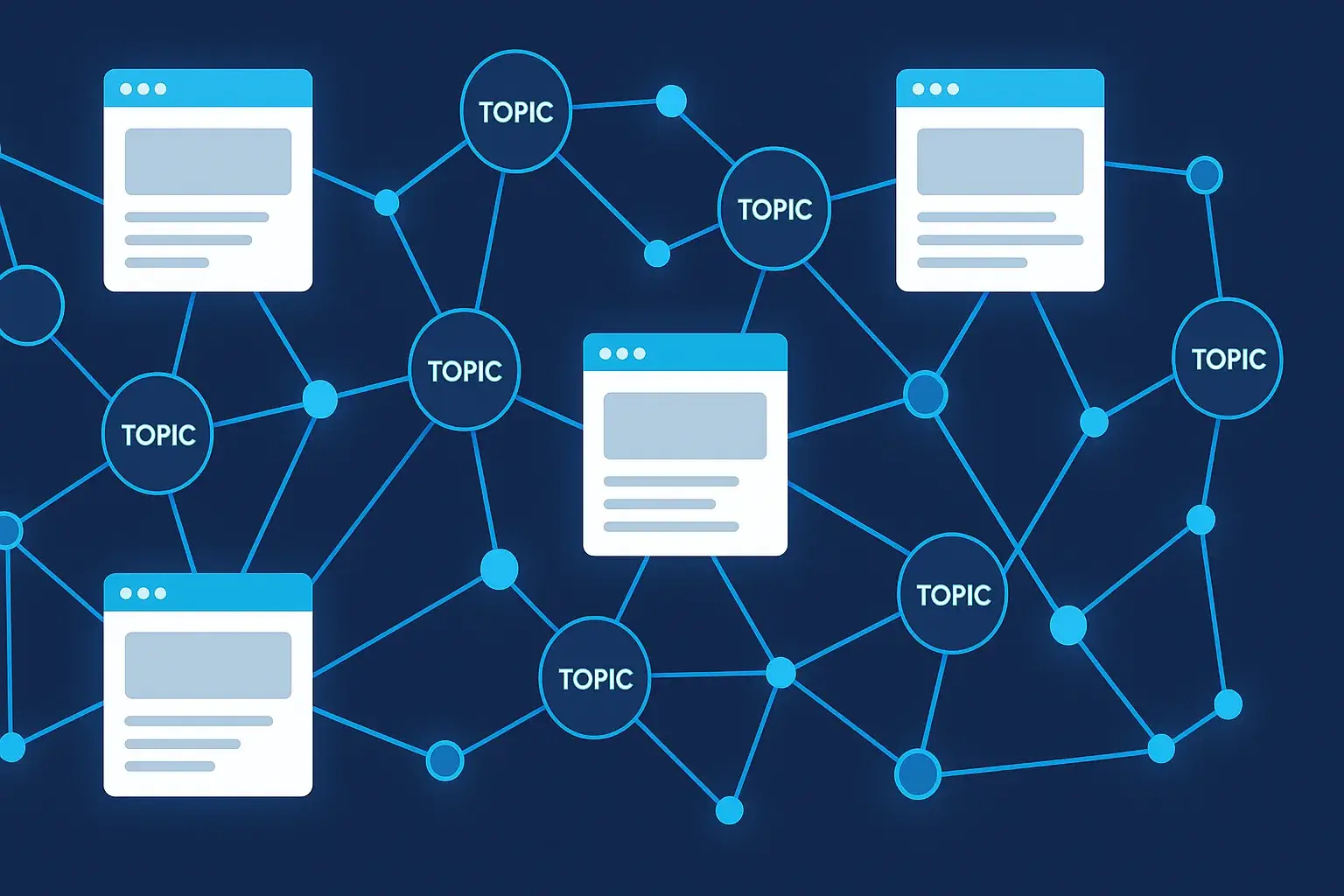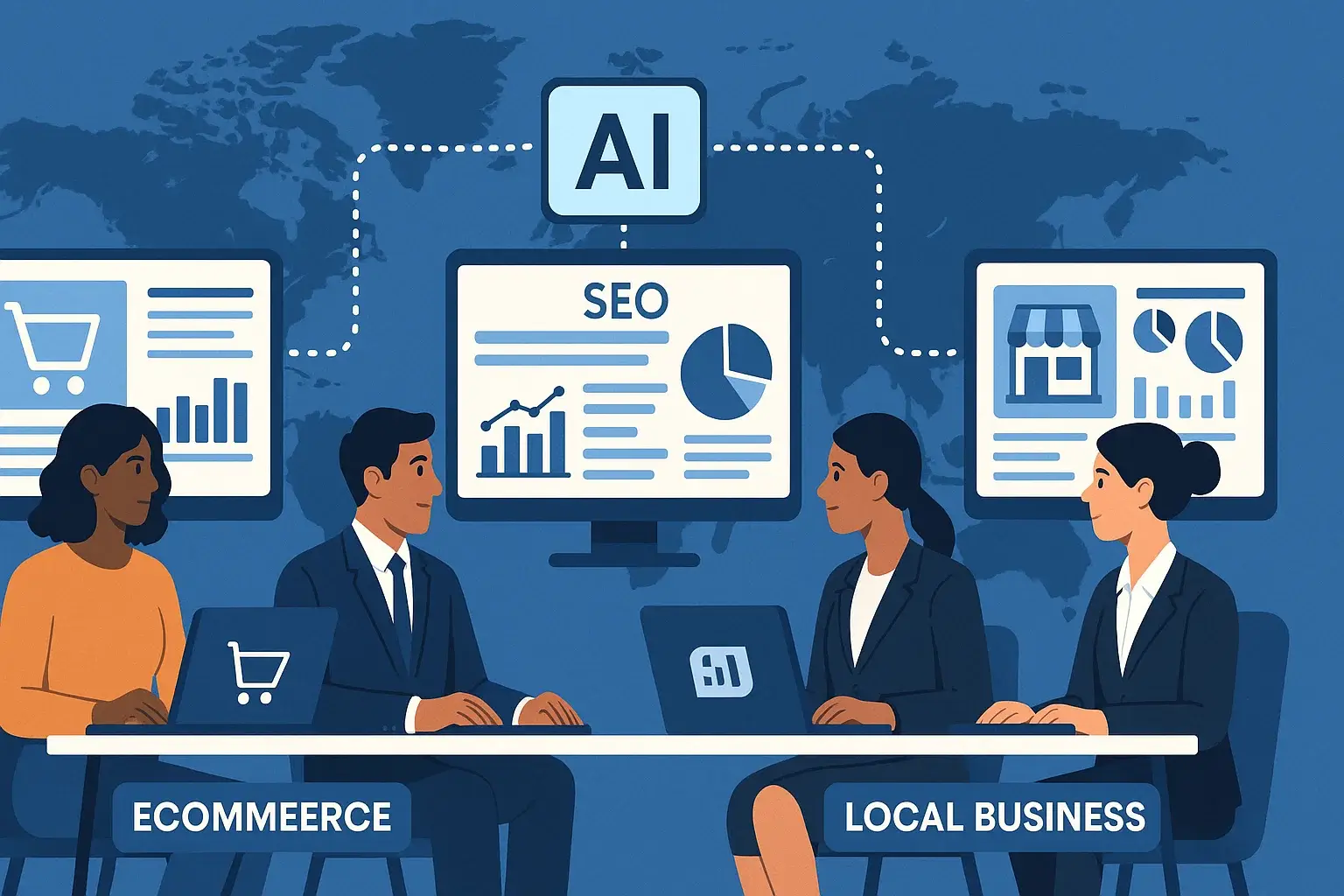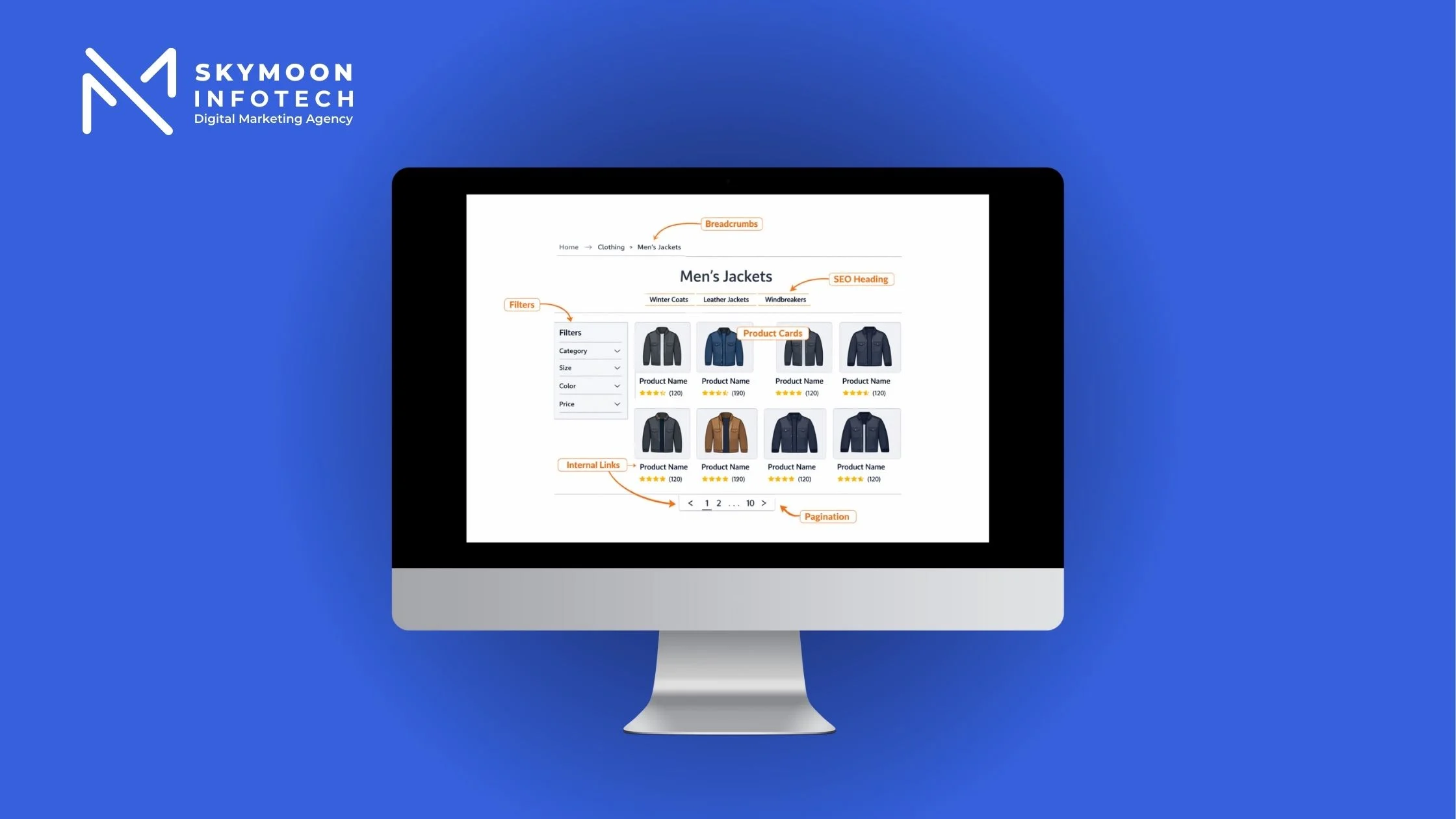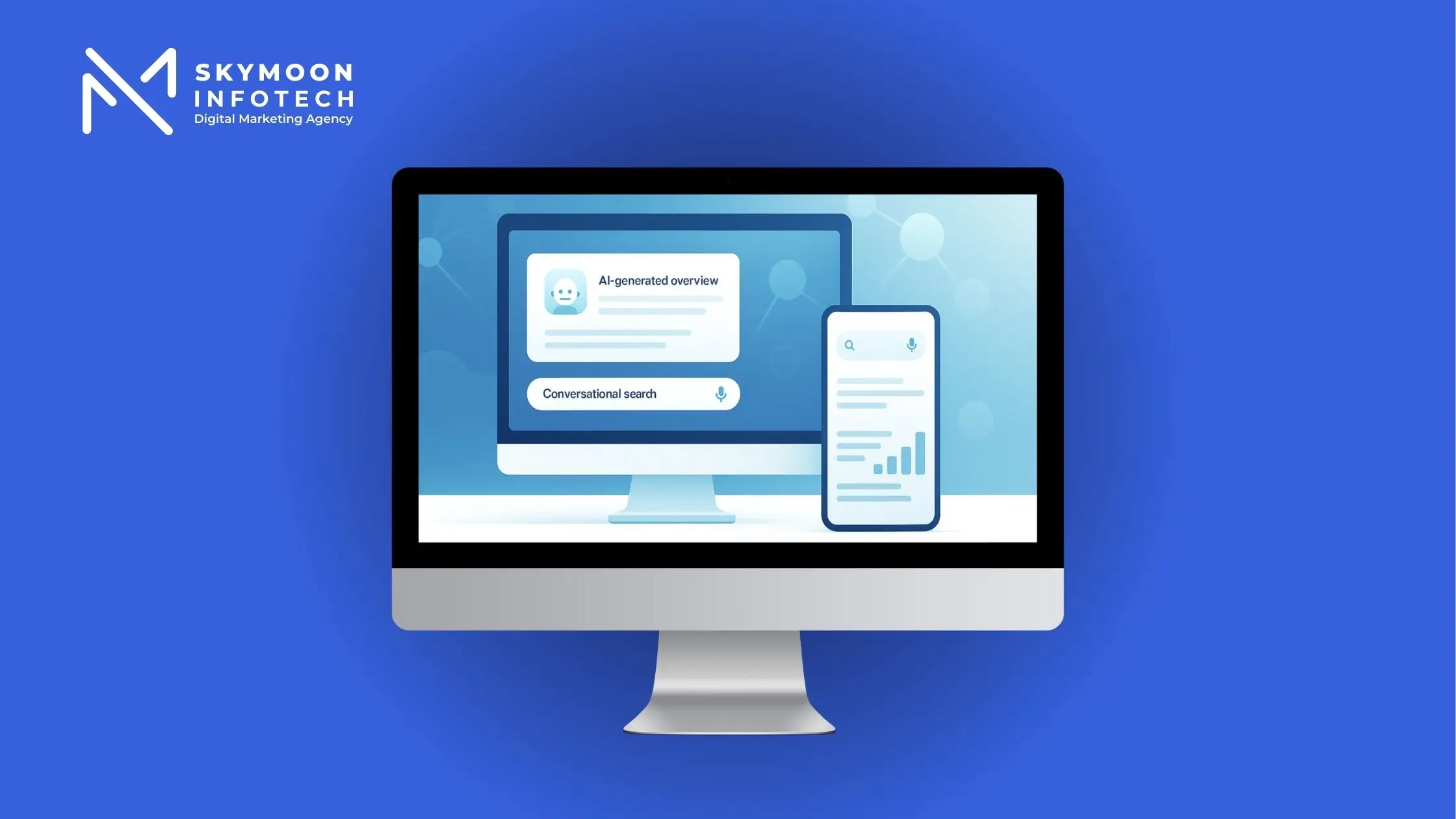AI SEO trends 2026 are reshaping how businesses approach visibility in the digital space. As artificial intelligence becomes integral to search engines and user behavior shifts, SEO is evolving rapidly. In this blog, we explore five key trends that are redefining the future of SEO with AI—and what you need to do to stay ahead.
The Impact of AI on SEO in 2026
The impact of AI on SEO has reached a turning point. With the rollout of Google’s Search Generative Experience (SGE), AI-generated overviews now dominate search results, minimizing traditional blue-link listings. Voice-enabled devices and AI chatbots are also taking over query handling, prompting marketers to optimize beyond Google’s first page. The result? A world where SEO strategies must align with how AI curates, summarizes, and delivers content.
- Zero-click results are rising, reducing reliance on traditional SERP rankings.
- Search is becoming more conversational, context-aware, and personalized.
- Human expertise and real-world experience are prioritized over generic content.
Explore how our SEO services align with AI-driven search
5 Key AI SEO Trends to Watch by 2026
1. AI Overviews Replace Traditional SERPs
Google’s AI Overviews are changing the SEO landscape. These generative summaries answer user queries directly on the results page, reducing the need for click-throughs. This shift has led to the rise of “Generative Engine Optimization,” where content must be structured to appear in AI summaries.
- Use structured data and schema to improve your chances of AI citation.
- Write concise, fact-based content with high authority.
- Focus on semantic richness and topical depth.
Read Google’s overview on SGE and AI summaries
2. Voice Search and Chatbots Reshape User Behavior
The adoption of voice assistants and AI chatbots like ChatGPT is altering how users search. With more people speaking their queries and engaging in conversational interactions, SEO must adapt to a more natural and dialogue-based structure.
- Optimize for long-tail, conversational keywords.
- Provide direct answers to potential follow-up questions.
- Ensure your content is accessible across platforms beyond traditional browsers.
See Gartner’s AI and search assistant forecast

3. E-E-A-T and Human Expertise Gain Weight
As AI-generated content floods the internet, Google is emphasizing trust and authenticity. Experience, Expertise, Authoritativeness, and Trustworthiness (E-E-A-T) have become central ranking signals. Pages showcasing first-hand experience, verified authorship, and expert insights are outperforming generic AI-written blogs.
- Add author bios and credentials to every article.
- Include first-hand case studies or original research.
- Encourage verified user reviews and comments.
Read Google’s guidelines on E-E-A-T
4. AI Tools Transform SEO Workflows
AI tools are no longer optional—they’re essential for SEO efficiency. From keyword clustering to on-page optimization, machine learning SEO tools enable faster analysis and smarter decision-making. According to HubSpot, 86% of SEO professionals already integrate AI tools into their daily workflows.
- Use AI for keyword research and trend forecasting.
- Automate meta tag and schema generation.
- Apply human editing for accuracy and tone.
Explore HubSpot’s AI SEO tools guide
5. From Keywords to Entities and Topic Clusters
Search engines now use machine learning to understand entities—people, places, and concepts—rather than relying solely on keyword matching. Building topic clusters and interlinking related pages helps AI grasp your authority in a subject area, improving both visibility and contextual ranking.
- Develop comprehensive content hubs with semantic links.
- Use structured data to define entities within pages.
- Focus on depth over keyword repetition.
Learn about entity SEO from Moz

How to Build an AI-Proof SEO Strategy
Building an AI-proof SEO strategy means balancing automation with authenticity. Combine the power of AI insights with human creativity to produce content that’s trustworthy, optimized, and experience-driven.
- Focus on first-hand expertise and storytelling.
- Optimize for AI summaries using structured content.
- Use AI tools ethically for scale and precision.
Common Mistakes to Avoid in AI SEO
Many brands rush to adopt AI tools without understanding the nuances of SEO ethics, data validation, and originality. Overreliance on AI can backfire if the content feels robotic or misleading.
- Avoid publishing AI-written content without human review.
- Don’t over-optimize for AI-generated snippets—maintain reader focus.
- Keep updating AI-optimized content to stay relevant as algorithms evolve.
Explore AI SEO strategy consulting

Use Cases and Industry Examples
From ecommerce brands optimizing for voice commerce to SaaS companies using AI to predict keyword trends, AI adoption in SEO is expanding across industries. Companies embracing AI SEO strategies are seeing up to 2.5x faster campaign optimization. Shopify, for instance, has implemented AI-based keyword modeling to tailor search experiences, while HubSpot’s content clusters demonstrate how entity-based SEO improves lead conversion.
- Ecommerce: Personalized product recommendations based on AI search queries.
- SaaS: Predictive keyword modeling for growth.
- Local Businesses: Voice search optimization for nearby intent.
Expert Insights
“AI won’t kill SEO—it will redefine it,” says Neil Patel, co-founder of NP Digital. “Brands that combine human storytelling with data-backed AI optimization will dominate the SERPs.” Similarly, HubSpot’s 2025 SEO report highlights that AI-driven keyword tools have improved campaign efficiency by over 30%, making them indispensable for modern marketers.
FAQs
What is AI SEO and how is it different from traditional SEO?
AI SEO integrates artificial intelligence tools and machine learning models to automate keyword research, analyze intent, and optimize for AI-powered search engines like Google SGE.
How can I prepare my website for AI Overviews?
Focus on schema markup, concise and factual writing, and demonstrate E-E-A-T through expert authorship and verified sources.
Are AI-generated articles safe for SEO?
Yes, when human-reviewed. Combine AI-assisted writing with human editing to ensure accuracy, tone, and compliance with Google’s Helpful Content guidelines.
Will voice search replace traditional SEO?
Voice search won’t replace SEO, but it changes keyword structures. Optimize for conversational, long-tail queries to align with voice intent.
How do AI tools improve SEO strategy?
AI tools analyze data faster, find hidden ranking opportunities, and automate repetitive tasks, allowing marketers to focus on strategic planning and creativity.
Conclusion
The future of SEO with AI is not about replacing humans—it’s about empowering them. By embracing AI responsibly and aligning strategies with human experience, brands can thrive in this new search era. The impact of AI on SEO is immense, but with the right AI SEO strategy, your business can lead the change instead of chasing it.
Contact our SEO experts to future-proof your digital presence.








